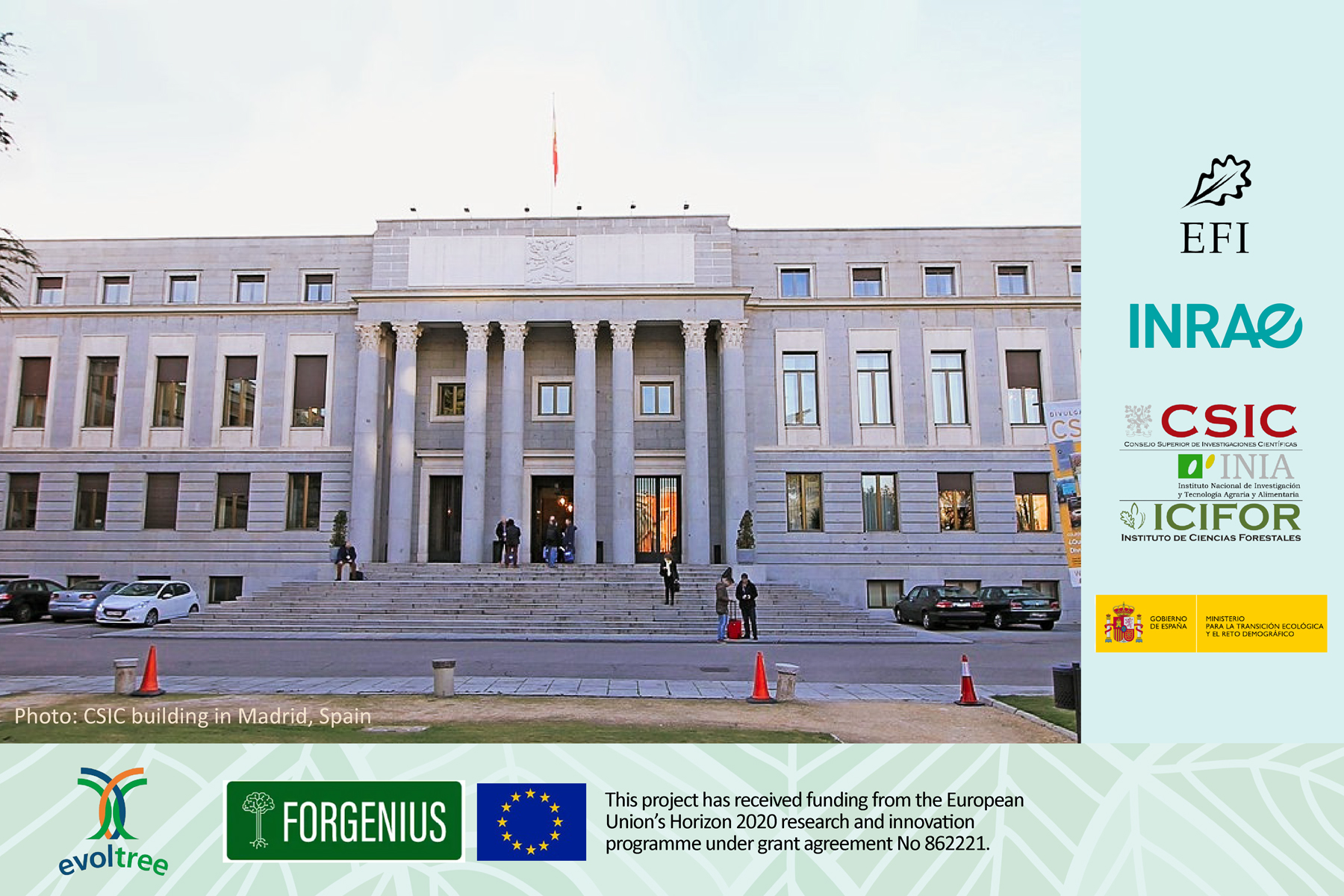EVOLTREE Online Seminar Series 2020 on Polygenic adaptation - October/November 2020
28/10/20
A series of virtual events featuring leading experts in research on polygenic adaptation - both in forest trees and other organisms. The series are an opportunity to hear the latest from relevant scientists in the field, exchange ideas and discuss potential collaborations and projects.
The webinars are listed below and you can view them on Youtube by clicking on the link.
Background
Variation in complex phenotypic traits, like growth, is known to be driven by many genes. For example, it has been shown that the height of humans is associated with thousands of regions in the genome. Approaches for detecting polygenic signals from genomic data, however, are still scarce and rarely applied. This seminar series aims to promote an exchange of knowledge among scientists working on polygenic adaptation in disparate organisms with the objective of facilitating development and wider uptake of the latest approaches.
Programme
The webinars are listed below and you can view them by clicking on the image.
For more videos, see Evoltree Youtube
- 28/10/2020, 16:30-18.00 CET

Jonathan Pritchard: "Architecture and adaptation of human complex traits"
Prof Jonathan Pritchard, Professor at Stanford University, uses statistical and computational methods to study aspects of genetic variation in human genetics and evolutionary biology. He is one of the most influential scientists in population genetics of our times having, amongst other notable achievements, developed the Structure algorithm and the polygenic / omnigenic model describing the genetic architecture of complex traits.
- 04/11/2020, 16:30-18.00 CET

Emily Josephs ‘The evolutionary forces shaping gene expression variation’
Prof Emily Josephs from Michigan State University studies how evolutionary forces, such as drift and selection, shape patterns of molecular and trait variation in natural and domesticated plant species. She tackles these questions using population genomic and quantitative genetic techniques with a focus on complex adaptive traits, the role of population genetic structure, and gene expression.
- 18/11/2020, 16:30-18.00 CET

Sam Yeaman: "A tale of two architectures: Local adaptation under migration-selection balance"
Prof Sam Yeaman from the University of Calgary focuses on understanding how complex traits evolve and how to develop and refine the genomic methods used to study them. He uses a combination of computational biology, analytical theory, comparative genomics, and observational and experimental studies of various organisms (e.g. conifers, sticklebacks, sunflower, and Drosophila) in their natural environment.
- 25/11/2020, 16:30-18.00 CET

Neda Barghi: "Polygenic adaptation in Drosophila"
Dr Neda Barghi, Group Leader at Institute of Population Genetics, University of Veterinary Medicine, Vienna, is an evolutionary biologist focusing on the genomics of complex adaptive traits. She is specifically interested in the genomic signatures of adaptive evolution in response to biotic and abiotic environmental changes, and is investigating the genetic basis of adaptation in experimental populations of Drosophila.

Moderator of the online seminar series: Prof Antoine Kremer
Prof Antoine Kremer, Emeritus Senior Scientist at INRAE, France, is a pioneer in the field of forest genetics and genomics. He initiated Europe-wide research on the genetic diversity of oaks beginning in the 1980s using quantitative and population genetic techniques, and has produced some of the theoretical background supporting the polygenic adaptation model. He was the Coordinator of the EVOLTREE Network from its beginning in 2006 till 2018.



